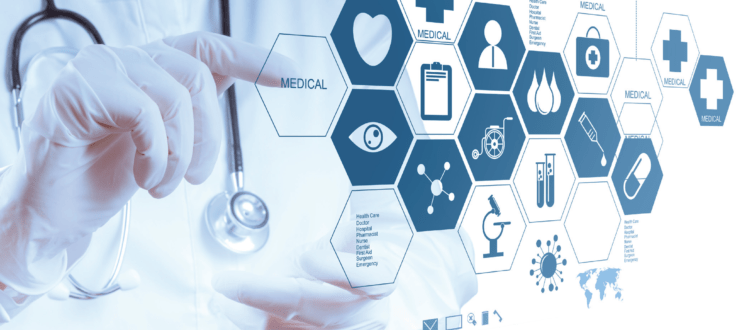Digital Transformation Trends in Health Care
This article was originally published in Forbes
We apply technology in almost everything we do in our lives, we use technology at work, communication, transportation, learning, manufacturing, securing data, scaling businesses, in medical fields and so much more.
For the past centuries, new medical developments and techniques have changed the face of healthcare. The medical field has always brought together the best and brightest of society to help those in need. No one can dispute technology’s ability to enable us all to live longer, healthier lives. From treating cancer and delivering babies to dealing with heart attacks, doctors have developed technology and improved techniques.
Technology is changing every industry in significant ways. Let me discuss the top trends in the healthcare industry.
Telemedicine
The field of telemedicine has changed severely from its inception. Telemedicine provide patients and health care providers both a new wave of freedom and accessibility. With the help of telemedicine, those patients in remote areas can receive the highest quality of care, providing they have an internet connection and smart phone. Patients are no longer need to schedule their days around routine follow-up visits and wait for a long time for their turn instead, they can hop on a conference call to get the prescription update or check-up they need. Telemedicine helps you to save both time and money.
Mobility and Cloud Access
Waiting for important test results can be so nerve racking. Mobility and cloud access have been such an extreme help in increasing accessibility for patients and doctors alike. Interaction with health care facilities will occur on mobile devices was estimated around 65% by the year of 2018. Doctors already use smart phones and medical apps. The healthcare industry’s transformation to cloud is inevitable and migration to cloud requires usage of mobile devices and applications that provide secure access to patients’ information and medical records with patients able to access their test results online 24/7.
Wearables And IoT
As the world population is aging and chronic diseases are rising, the healthcare industry is expeditiously delivering high-tech solutions. The escalation of advanced medical electronic devices and wearable electronics is significantly improving patient outcomes and lessen healthcare costs. Today, mobile devices as small as cell phone can perform medical test (e.g. ECGs, DIY blood tests) and even serve as a thermometer without even leaving your house. You can even check your weight, pulse and oxygen levels by entering it to your mobile patient portals and it can also transmit the results to your doctor in real time. This is far more than cool. It’s life-saving.
Artificial Intelligence And Big Data
With the evolution of digital capacity, more and more data is produced and stored in the digital space. The amount of available digital data is growing at a mind-blowing speed, doubling every two years. The use of big data and artificial intelligence in the medical field has the potential to bring about a revolutionary change. It can gather to measure customer satisfaction, but most importantly, it can use to identify the risk and recommend preventative treatment. Internet of (Medical) Things, mobile and wearable devices are increasingly connected, working together to create a cohesive medical report accessible anywhere by your health care provider. This data is not just useful for the patient. It can be pooled and studied en masse to predict health care trends for entire cultures and countries.

